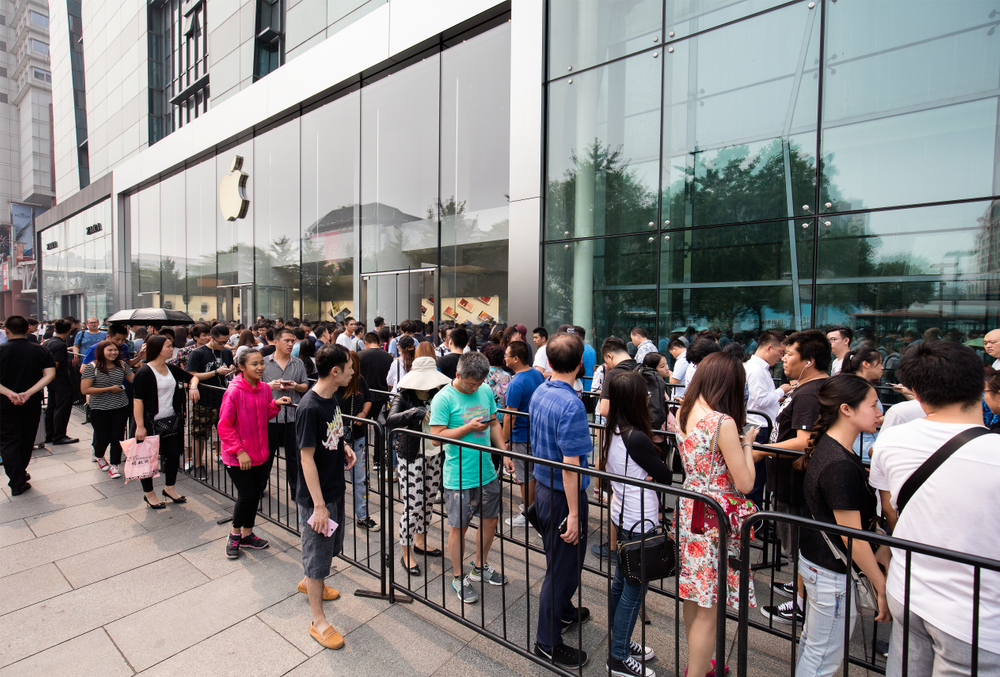| 최초 작성일 : 2025-09-06 | 수정일 : 2025-09-06 | 조회수 : 45 |

“Relying on ‘spirit-free days,’ moving companies face soaring demand and prices” [The Korea Times, 2025.07.12] “Wedding hall chaos: when everyone chooses the same ‘lucky day,’ costs double” [The Chosun Ilbo, 2025.06.30] “Fortune-telling cafés booming among millennials and Gen Z: reservations for ‘auspicious day’ consultations surge” [Yonhap News, 2025.05.22] ---------------------- In South Korea, the notion of auspicious days (길일) is not a relic of the past but a living cultural practice that still profoundly shapes everyday decisions. When to move house, when to marry, when to open a business—these are often decided not only by schedules or market conditions, but by red-marked dates on a lunar calendar. As recent reports show, demand for moving services spikes dramatically on so-called spirit-free days, driving prices far higher than average. Wedding halls are overbooked on the same “good days,” forcing couples to pay twice as much. Even among younger generations, fortune-telling cafés thrive, as millennials and Gen Z book consultations for choosing wedding or business launch dates. Why, then, do people continue to cling to these “lucky days,” even in a hyper-modern society dominated by artificial intelligence, big data, and rational planning? The persistence of auspicious-day practices points to something deeper than mere superstition. It suggests that in an era of pervasive uncertainty, rituals act as anchors of psychological comfort and social cohesion. This raises a series of critical questions: - Are auspicious days simply irrational beliefs that hinder modernization? - Or do they function as cultural mechanisms that address uncertainty, provide order, and reflect collective identities? These questions cannot be answered by simplistic judgments such as “superstition is bad” or “science should prevail.” To understand why auspicious days still wield such influence, we need to examine the cultural, psychological, and economic layers embedded in the practice. In this article, guided by the principles of theory journalism, we will not stop at describing the phenomenon but instead explore it through the lenses of sociology, psychology, and economics. By introducing key theories and then applying them to contemporary news cases, we aim to reveal why auspicious days remain so deeply rooted in Korean society. At the same time, we will reflect on the broader dilemma: how to respect cultural traditions while minimizing inefficiency and inequality in modern life.
Before we interpret the news cases, we need to pause and understand the academic frameworks that help us decode why practices like auspicious days endure in a modern society. Theory journalism works best when the audience first becomes familiar with the intellectual tools, so that later applications to real-world phenomena make sense. Four theories are particularly relevant: Ritual Theory, Uncertainty Reduction Theory, Behavioral Economics and Prospect Theory, and Cultural Hegemony Theory. 1) Ritual Theory – The Persistence of Meaning in Modernity Ritual theory, rooted in the works of anthropologists like Émile Durkheim and later expanded by Clifford Geertz, argues that rituals are not arbitrary acts but socially embedded practices that give meaning, structure, and emotional assurance to life. Even in secularized modern societies, rituals serve as stabilizers. They transform the uncertain and chaotic into something predictable and manageable. When a family chooses a wedding date or moving day based on ritual calendars, the act is not purely about metaphysics but about aligning with a collective order that reassures them they are not acting alone. The calendar becomes a cultural compass. 2) Uncertainty Reduction Theory – Managing Anxiety through Predictability Originally developed in communication studies (Charles Berger, 1975), Uncertainty Reduction Theory highlights the human need to minimize unpredictability in interactions and decisions. Applying this logic more broadly, auspicious days can be seen as mechanisms for reducing existential anxiety. When confronted with major life transitions—marriage, moving, starting a business—people feel vulnerable. By adhering to culturally sanctioned “safe days,” they gain a sense of control. Whether or not the day itself has inherent power is less important than the psychological effect of certainty and reduced risk. 3) Behavioral Economics & Prospect Theory – Risk Aversion and Cognitive Biases Prospect Theory, pioneered by Daniel Kahneman and Amos Tversky, explains how people weigh potential losses more heavily than equivalent gains. This “loss aversion” bias helps explain why families avoid inauspicious days even when rational calculations suggest no difference. Choosing an unlucky day carries the fear of catastrophic loss (e.g., a bad marriage, failed business), whereas choosing a lucky day offers little more than peace of mind. In this sense, the cost of avoiding risk—higher prices for moving or weddings on auspicious days—is tolerated because the alternative feels far riskier. 4) Cultural Hegemony – Tradition as Social Power Antonio Gramsci’s concept of cultural hegemony reminds us that traditions can serve as instruments of subtle social control. By internalizing the notion of auspicious days, individuals act in ways that perpetuate the authority of cultural elites, religious institutions, or commercial actors (such as fortune-tellers, wedding halls, and moving companies). This framework allows us to see how seemingly voluntary adherence to traditions might actually reflect entrenched power dynamics. People are not merely choosing dates—they are participating in a system that profits from their compliance. Synthesis of Theoretical Lenses Taken together, these four frameworks help us construct a multi-layered understanding: - Ritual Theory explains continuity. - Uncertainty Reduction highlights the psychological need. - Prospect Theory uncovers cognitive biases and economic behaviors. - Cultural Hegemony shows structural power and vested interests. Only when these perspectives are understood independently can we later apply them to the news about moving-day bottlenecks, wedding overpricing, and the booming fortune-telling industry. This theoretical groundwork ensures that our analysis moves beyond simple cultural stereotypes and toward a nuanced comprehension of why auspicious days continue to thrive.
Once the theoretical groundwork is laid, we can now bring it into dialogue with actual news reports and lived experiences in South Korea. Recent coverage has highlighted a range of issues: wedding halls fully booked on auspicious weekends, moving companies overwhelmed on so-called spirit-free days, and even online platforms monetizing fortune-telling calendars. These are not random inconveniences; they are predictable outcomes when ancient cultural rituals interact with modern markets and urban lifestyles. Through the prism of theory, we can decode why these phenomena persist and what they reveal about Korean society. 1) Ritual Theory in Action: Weddings and Collective Assurance South Korean newspapers often report on couples who struggle to secure wedding venues because so many want to marry on auspicious weekends. Wedding halls double-book, prices rise, and some couples postpone marriages for months. Ritual theory helps us see why this pressure exists: the wedding is not just a private event but a collective ritual in which aligning with the right date provides a sense of belonging and moral order. Families often insist on ritual timing even when younger generations see it as unnecessary. The ritual, in this sense, transcends personal preference—it is an affirmation of family honor and cultural identity. 2) Uncertainty Reduction: Moving Day Bottlenecks Another striking example is the over-concentration of household moves on “spirit-free days,” widely believed to minimize misfortune. Moving companies report up to three times normal demand on these dates, leading to shortages of trucks and skyrocketing fees. Here, Uncertainty Reduction Theory explains the behavior: moving is already stressful, symbolizing change, risk, and instability. By aligning with auspicious timing, families psychologically reduce their anxiety, even at the cost of higher expenses. Ironically, the very act intended to reduce uncertainty creates new forms of social and economic chaos. 3) Prospect Theory: Paying More to Avoid “Loss” News articles describe families who willingly pay up to 50% more for moving services or wedding reservations on lucky dates. Prospect Theory clarifies this apparent irrationality. The financial “loss” of paying extra is perceived as minor compared to the potential catastrophic “loss” of inviting bad fortune. In other words, the asymmetry between the fear of disaster and the hope of gain explains why people tolerate inflated prices. The clustering effect is not simply about superstition—it is a rational outcome under the cognitive bias of loss aversion. 4) Cultural Hegemony: Who Benefits? While many families feel pressured by these traditions, entire industries thrive because of them. Fortune-telling apps and services generate enormous revenues, and wedding halls or moving companies exploit the concentration effect to maximize profits. Gramsci’s notion of cultural hegemony helps us see how cultural norms function as tools of power: people are not coerced by law but by social expectation, yet the result sustains economic structures that benefit elites. In this sense, adherence to auspicious days is less about “choice” and more about participation in a hegemonic system that extracts value from belief. 5) Global Implications: A Mirror Beyond Korea Though these practices may appear uniquely Korean, similar clustering happens elsewhere. In China, demand for weddings on numerically auspicious dates (such as 8/8/08) overwhelmed the system. In India, astrology-based wedding seasons cause dramatic spikes in catering and hotel costs. In the West, Black Friday and holiday shopping reflect a secular form of ritualized clustering driven by cultural narratives. Seen globally, the Korean case is not an anomaly but part of a wider human pattern: ritualized behavior, when amplified by markets, leads to inefficiency, inequity, and new forms of social stress. 6) What the News Often Misses Mainstream reporting tends to treat these issues superficially: highlighting traffic jams, high costs, or quirky cultural habits. What they miss is the structural interpretation: that auspicious days are not simply superstitions but mechanisms rooted in deep psychological needs, amplified by economic incentives, and reinforced by cultural power. Without a theoretical lens, the news risks trivializing what is, in fact, a significant social phenomenon that reveals how tradition and modernity collide in daily life.

The persistence of auspicious days (giril or spirit-free days) in modern Korea offers not only a cultural insight but also a practical challenge for policymakers, businesses, and civil society. If left unaddressed, the clustering of activities on these dates will continue to generate inefficiencies, inequalities, and subtle social tensions. Yet, attempting to abolish or ridicule the practice outright would backfire, as it dismisses deeply rooted cultural needs. The task, then, is to acknowledge tradition while mitigating its unintended consequences. Policy-level responses The Korean government could introduce regulatory nudges rather than coercive bans. For instance, municipal authorities might create incentive schemes such as discounts for moving permits, wedding venue fees, or utility connections when events are scheduled on non-peak days. Just as traffic congestion pricing smooths the flow of cars in cities, differentiated costs could help redistribute demand in the “ritual calendar economy.” At the same time, public awareness campaigns could emphasize flexibility—reminding citizens that cultural meaning can be preserved even if dates are adapted. Corporate and industry strategies Businesses, especially in the moving and wedding industries, can innovate by decoupling ritual symbolism from fixed calendar dates. A wedding hall could offer a symbolic “auspicious package” that incorporates ritual elements—consultation with a fortune teller, traditional ceremonial gestures—regardless of the date. Moving companies might collaborate with religious or cultural authorities to certify alternative “blessing days,” thus easing bottlenecks while retaining the aura of luck. By reframing rituals as symbolic experiences rather than immovable dates, industries could serve consumer psychology without amplifying inefficiencies. Civil society and education NGOs, universities, and media outlets can play a role in fostering critical but respectful discourse. Education programs, particularly in schools, should teach students the cultural origins of rituals alongside the importance of rational planning. Such dual education helps younger generations to appreciate their heritage while making independent, informed choices. Importantly, this avoids the trap of cultural shaming—acknowledging that rituals are not irrational but historically functional, even if their literal basis has waned. Global collaboration and cultural exchange Korea is not alone in grappling with the balance between tradition and modern efficiency. In India, auspicious wedding seasons also cause skyrocketing prices; in China, “lucky numbers” drive real estate sales. Korea could benefit from comparative studies and cooperative dialogues with these countries, exchanging strategies on how to integrate ritual respect with rational governance. Such global exchanges not only reduce parochialism but also position Korea as a leader in cultural sustainability—the ability to preserve intangible heritage without undermining social well-being. Democracy and cultural legitimacy Finally, this debate ties into broader democratic questions. A society that imposes purely technocratic rationality risks alienating citizens who find meaning in rituals; conversely, a society that clings uncritically to tradition risks inefficiency and inequity. The solution must be negotiated, not dictated. Policymakers should engage communities directly—listening to why people continue to value auspicious days and co-designing solutions that retain legitimacy. This participatory approach ensures that reforms are not seen as attacks on identity but as collective steps toward a balanced future. The larger implication At its core, the issue of auspicious days reminds us that modernity does not erase the past but coexists with it. Rational governance must therefore be culturally literate, while cultural practices must adapt to the realities of modern society. The Korean case is emblematic of a universal challenge: how to honor tradition without becoming hostage to it. By treating rituals as flexible cultural assets rather than rigid dictates, societies can both safeguard identity and improve efficiency.
The persistence of auspicious days in modern Korea is far more than a quaint cultural oddity; it is a profound reflection of how societies balance inherited traditions with the accelerating demands of modern life. A wedding planned on a “lucky” date, a move crowded into a spirit-free day, or a line of customers waiting for a fortune teller before finalizing major decisions—each is a small vignette of a deeper cultural negotiation between rational planning and symbolic reassurance. From a philosophical perspective, these practices demonstrate that human beings do not live by efficiency alone. Ulrich Beck’s risk society thesis reminds us that modernization introduces new uncertainties: global markets, fragile employment, climate instability, and technological disruption. In such contexts, rituals like auspicious days act as a form of cultural insurance, providing psychological stability where rational predictions fail. Even if science cannot prove the efficacy of these rituals, their social function—helping people to feel grounded—is undeniable. International comparisons highlight the universality of this phenomenon. In China, the lunar calendar still dictates high-demand dates for weddings and business openings. In India, astrological charts shape decisions from marriage to election timing. In Japan, the rokuyō system, listing lucky and unlucky days, continues to influence calendars and commerce. Even in the so-called rational West, we see echoes in the avoidance of the number 13 in buildings or the popularity of New Year’s resolutions. Korea’s case, therefore, is not exceptional but rather a striking example of how cultural practices adapt under the pressures of modernity. Yet, the Korean example also underscores the tensions these practices create. When rituals lead to bottlenecks—skyrocketing moving costs, inflated wedding expenses, or clogged urban traffic—they transform from private comforts into public inefficiencies. This raises a core question: how should societies balance respect for cultural continuity with the pursuit of collective efficiency? To dismiss traditions outright risks alienating communities; to preserve them uncritically risks exacerbating inequality and waste. The answer may lie not in abolition, but in reframing. Instead of viewing auspicious days as rigid prescriptions, they could be celebrated as symbolic milestones spread flexibly across the calendar. Public campaigns, policy nudges, and creative business models can help decouple ritual significance from strict dates. In doing so, societies can preserve the emotional resonance of tradition while reducing the economic burdens they create. Ultimately, the issue of auspicious days speaks to a universal human tension: we are rational beings who crave predictability and efficiency, but also symbolic beings who seek meaning, reassurance, and cultural continuity. Korea’s challenge—and opportunity—is to model a way forward where tradition evolves with dignity rather than being discarded or rigidified. The deeper lesson, for Korea and beyond, is that the future will not be built by science or tradition alone, but by the creative interplay between them.













